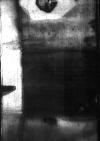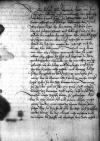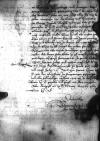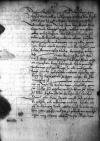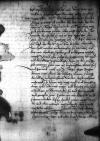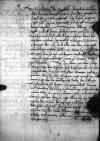Noch deme dan / diesen koniglichen stadt ⌊Dantzigk⌋ / hogste wolfart / wachsthum / gedey / und zcunehmen / der loblichen ⌊Cronen zcu Polen⌋ / unde derselbigen underworffenen furstenthumen, / landt / und lewten, / wie och allen ⌊eynwonern / dieser lande Prewsen⌋ / aus der sehfart, / wie sulchs idermenniglich kundig / beywachsze unde stehe. / Neben deme och der ⌊koniglichen maiestat⌋ unser allergnediger herr hoger preislicher und loblicher name nich am wenigsten / durch diser ⌊stadt⌋ schifsgewalth / hanttirunge / und handlunge / in alle ummbligende reiche / landen / und fölcker erbreitet / besunder och durch die schifsgewalt / in hogem ansehen / bey idermenniglich ist. / Seint unser vorfaern, / wie och wyr / bey unsern tagen / sorgfeldig gewesen / zulchs zcu erhalten / und in keinen fal / komen zcu lossen / hogsten fleises / branher bestanden. / Dweil aber diser itzigen werlt / fast geschwinde gelöfte / vile enderunge / einfuret / haben wir och in diser guten ⌊stadt⌋ / welchs sunst in vilen andern ortern geschen / und hier zu gedencken von unnotigk achten / nich(!) cleynen abbruch unser nahrungen / und sunderlich / der schiffart / dergestalt / befunden das dar vor wenigk jaeren / zcwuschen zcwehundert sigel / hier zcu haus gehorigk, / aus disem porth gesigelt sein / itzunt schwerlich / funfczigk aus gebr... konnen werden. / Was abbruch / di[ser] stadt / und all denen, / zo dises ports genissen / an schiffen / und sunst aller krigs rustunge, / domit die schiffen muniret. /
Item vorlust erfarner sehlewten / schweigen den nutz / und alles wes dem anhengigk / aus sulchem entstehe / stellen wir Ewer Hochwirdigste Gnade (als der von Goth dem herren / mit hogerm vorstande / begobt / auch aus hoger erfarnheit weiter zu erwegen wehs) zcu bedencken. / Noch deme wir aber / sulche abnehnunge der sehfart / und schifs gewalt / mit hoger sorgfeltickeit / in unsern ratschlegen / bewogen / und gefunden, / das sich / sulch abnehmen / nicht wenigk aus de[n] vorursacht, / das die ummbligende stetten / des loblichen furstenthums zcu ⌊Pomern⌋ / sampt ⌊Lubeck⌋, / ⌊Bremen⌋ / und ⌊Hamborg⌋ / die faert / und ladunge / alhier bey u[ns] meren teiles / von unsern burgern haben / und uberkom[men]. Doraus erfolget, / das sie nicht alleine bey sich be... och bey den unsern / die phracht und fart / in ... den haben. / Och also / das unser schiff alh... (... bessers) / an der stadt mauern / und zcewnyn ... bleiben und verrotten mussen, / wie itzunt etzliche jare bestheen isth.
Neben disem haben obgemelte stette / aus iren satzunge / ordenungen / und vorwillungen / den gebrauch, / das kein fremb schif / in ihren stetten / und koflewten / phracht und ladunge / bekommen kan. / Dweil ihre eigene schif / bey den stetten / zcu hause szein / dan zcu sulcher phracht und ladunge / seint sie dergestalt die negsten, / das vor ihnen / kein frembd schif / es sey von hinnen / ader sunst / whor her es welle, / dweil die ihrigen vorhanden / phracht und ladunge kan bekommen. / Und noch deme wir dan / aus sulchem vormerckt, / das sie nicht alleine / bey ihnen / die fart und bergunge / in ihren handen gehalten / besunder och bey uns / alhier an sich gebrocht, / als die sulche und dergleichen constitutiones bey uns bisanher / nicht gehabt / und derwegen / durch sulchs dergestalt an der nahrunge ogensichtig zcunemen, / das do ⌊Bremen⌋ / ader ⌊Hamborg⌋ / vorhin wenigk schif / haben in die sehe brengen konnen. / Vormogen sie itzunder / wol ein ider / eine grose zcall / auszcubrengen, / och derwegen / tagk teglich / auf unser vör wasser / mehr schiffe bawen / zcu gebrauchen. /Also das do wÿr diesem fal / und unserm obligen / nicht geroten werden / wirt eigentlich bynnen kurtzen jaren folgen, / das sie dise stadt / aus der sehe / und schiffart werden brengen / die doch allewege / mehr ansehens unde vermugens der schiffe / als obgedochte dreÿ stette / gehabt etc.
Sulchem allem mit reiffem rathe / und notturftigen satzungen / vorzcukommen / haben wir mit den fornehmsten und wegsten burgern / diser stadt / vormoge derselbigen privilegien, / wie och der ⌊koniglichen maiestat⌋ unser allergnediger herr hintergelossenen statuten / uns nicht wenig / dieses fals bekommert / und bemu.... Domit die mittel und wege getroffen, / das obgem[elten] abnemen / och zcu letzst / undergenglichen fal / geroten un[d] ... kegen gebawet wurde. / Derwegen wir zcum ir[sten] ansprunge / kein ander mittel / befunden / den / das wir das zcu erhaltunge / der sehfart aufrichten teten / was obgenante stette / vor die ihren gesatzt und befunde / hier och bey den unsern aufrichten teten. / Als nemlich do wir / vormittelst / einer gemeynen bewilligeten constitution entschlossen, / das die unsere / vor den frembden / das vorgehen, / och die negsten zur ladunge sein solten. / Es were dan, / das sich imants / frembdens bey uns / seÿnes vormugens selbst laden wolte / sol ihme vorbehalten und unverschlossen sein / gleiches falles / einen id... frembde schiffe / zcu phrachten / wen die unsere mith phracht und ladunge vorsehen / frey sein solte. / Och solten etzliche aus unserm mittel / dortzu verordent s... ein fleisig aufmercken zcu haben, / domit nymant m... der phracht nehmunge / ubersatzt und beschweret ... und also / wurde die gleichet / under der stett... gehalten. / Dweil sie das gesetz bey uns tragen ... das sie den unsern / bey sich auferlegtt he.... Als aber dis / wie obgedocht in rats[chle]gen / un... geschwebet / und noch nÿhe / zur tracht geko[men] hot ...
⌊konigliche maiestat⌋ (nicht wissen wir / durch wes getrib) mit hiereingelegten mandaten / gantz ernstlich uns angegriffen / also / das obgemelter unser handel stutzig gemacht ist worden / bis das wÿr bey den ⌊hern koniglichen rethen diser lande⌋ / ummb genedigen rath und furderunge gebeten / aber nicht befunden / das imanden der handel, / zo wie er uns angesehen / die zceit / zcu gemutte / gegangen seÿ etc. / Also das wir zcu latzst / bey der ⌊koniglichen maiestat⌋ uns bearbeit / obgemelten irer maiestat mandat / underteniglich zcu vorleggen / auf das wir obgedochten schaden / und undergang vorhutten mochten. / Dweil aber sulchs bey hochgenanter ⌊koniglichen maiestat⌋ und derselbtigen hochwirdigsten reten / och kein ansehen habe gewonnen. /Seint wir och unfruchtbar / abegeschuhen / und hierummb, / weil wir in sulcher hogen sachen / dorane nicht alleine / der loblichen ⌊Cronen⌋ sampth derselbigen underworffenen landen / hogste wolfart / anhengigk / in keinem orth, / rath, / trost / und beyphlichtunge / haben bekommen mogen / und dennoch mit sunst vilfaltiger widderwertickeit hin und her beczwackt und geengstet seint. / Haben wir aus bedruck und schwermutickeit / disem handel / weiter nochzcutachten / und aller notturft noch zcudencken / zcur zceith nochlossen mussen. / Dweil dan abermols / sulchs / durch unser burgere / durch ir schwermutigen clagen / und viler lewten narunge abbruch / an Ewer Hochwirdigste Gnade gelanget / und derwegen / diesen gemeynen ⌊vaterlande⌋ / gerne geroten sege (des wÿr dinstlich danckbar) haben wir, / wie sulchs alles bey uns begeben / angesehen uns / der erbare und namhaftige her ⌊Georgen Scheveke⌋ / burggrab / und unser liber her b[ur]germeister / Ewer Hochwirdigste Gnade / genedigen schreiben / und bogier ... erkennen gegeben / dinstlichen / berichtsweise / zu vorm... nicht nochlossen wellen / Ewer Hochwirdigste Gnade als unsern gen[ne]digen patron und herren / bittende / mit ihrem genedigen rath / und bedencken / uns in diesem fal / nicht abzustehen / dan do Ewer Hochwirdigste Gnade sampt den andern ⌊hern reten / dises landes⌋ uber unsern privilegien genediglich halten wollen. / Als denne haben Ewer Hochwirdigste Gnade aus desselbigen privilegien abschrift hiereingeleibt / in genaden zu vornehmen, / das wir sulchs und mehrer / ander ⌊koniglichen maiestat⌋ unser allergnediger herr sampt derselbtigen *hern rethen einrede / zu thunde / guth mass und macht haben etc. /
Und thun hiermit Ewer Hochwirdigste Gnade / Gote dem almechtigen / in langweriger geszuntheit und aller gefugseligen wolfart / uns och in dersselbigen Ewer Hochwirdigste Gnade genaden / und gunst / mit fleis entphelen. /
